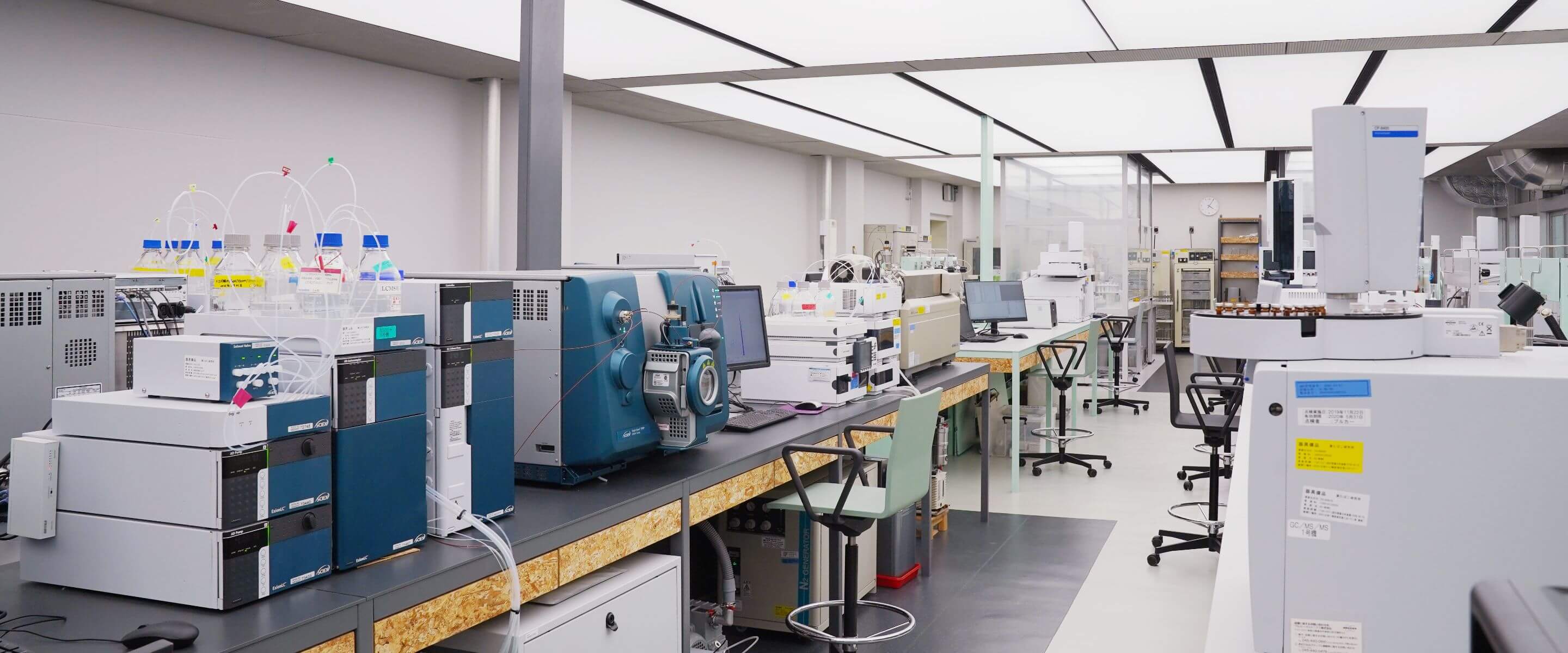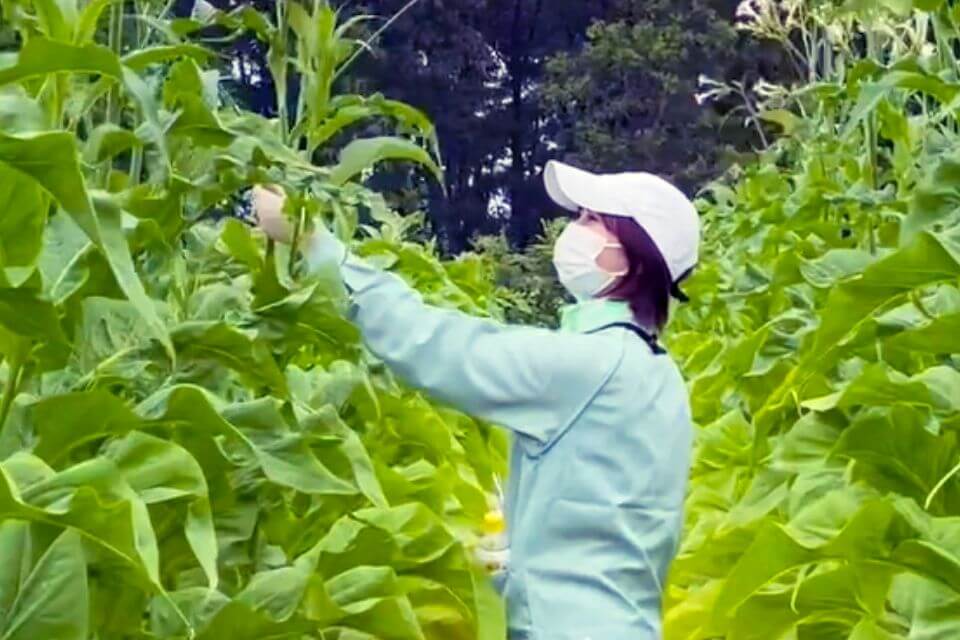Science Research
Science Research positioned at the uppermost level of research and development activities
Tobacco products have long been enjoyed by people around the world for hundreds of years as “Shikohin,” non-essential yet desirable items consumed for pleasurable taste or experiences rather than nourishment. Recent changes in tobacco products have been remarkable, and behind these changes is the application of technologies developed based on science. The JT Group has been conducting science research for the development of tobacco products for many years. Aiming to deliver better products to consumers, we set themes that meet consumer needs, trends in science and technology, and the market and business environment, and conduct research on everything from clarifying phenomena to technology development.


- Battery evaluation / assurance
- Electrical engineering, Materials engineering
- Combustion / thermal decomposition
- Thermodynamics, Chemical reaction theory, Combustion engineering
- Smoke generation / filtration / dilution
- Fluid mechanics, Process engineering
- Leaf tobacco component analysis
- Analytical chemistry, Bioorganic chemistry
- Raw material processing / treatment
- Process engineering, Mechanical engineering
- Tobacco leaf materials
- Molecular biology, Thremmatology (breeding),Bioproduction science, Plant pathology
- Rolling paper / filter materials
- Polymer chemistry, Materials engineering
- Consumer preferences
- Perceptual psychology, Behavioral economics
- Sensory reception / perception
- Neurophysiology, Brain science
- Risk assessment
- Toxicology, Cellular biology,Veterinary medicine
- Smoke component analysis
- Analytical chemistry
- Aerosol properties / behavior
- Measurement engineering,/
Measurement engineering,/Fine particle engineering
Innovating and contributing to the value creation of tobacco products
We are engaged in daily research to develop innovative products by combining research results. Our research is not limited to existing tobacco products and raw materials. Instead, we are advancing research subjects and approaches by exploring new materials and analytical methods. And we use knowledge obtained through science research not only to develop technologies and product development; we also disclose this knowledge to the public to facilitate communication with consumers and so on. Each and every one of us therefore conducts research with a sense of responsibility based on high ethical standards.
A unique research style distinctive of the JT R&D Group that transcends field barriers
The scientific fields relevant to the development of tobacco products are wide-ranging, and our R&D researchers specialize in a variety of fields, including applied mathematics, biology, chemistry, engineering, and psychology. Sometimes there is the impression that research is conducted by researchers in the same field, but at the JT R&D Group, exchanges of information and cooperation that transcend field barriers are very active. In addition, we conduct joint research with external research institutions and universities, stimulating our own curiosity and creating an environment to deepen and expand our expertise.

Leaf tobacco research: Science research on leaf tobacco materials
There are many varieties of the agricultural product leaf tobacco, and the nature and properties of harvested leaf tobacco depend on the soil, climate, cultivation method, and drying conditions. Research on leaf tobacco is very important in the manufacture of tobacco products because it is the basis for the taste and flavor of them. Leaf Tobacco Research Center conducts a variety of research on leaf tobacco. This includes genetic analysis and selective breeding using molecular biological techniques, examination of cultivation and drying conditions, and analysis of contained compounds using various techniques.

Tobacco science research: Science research on all aspects of tobacco products, from raw materials to human behavior
Tobacco products are simple non-essential yet desirable items used to enjoy the taste and flavor of leaf tobacco. They come in a wide variety of forms and can be enjoyed in a number of ways, including cigarettes, snus,* and RRP.* Tobacco science aims to create products that satisfy consumers and to create the next generation of new tobacco products by conducting research not only on the components of existing tobacco products such as raw materials and RRP* devices but also on a wide range of elements including human behavior.
*Snus: A type of smokeless tobacco placed between the lips and gums
*Reduced-Risk Products: Products with the potential to reduce the health risks associated with smoking
Examples of research themes
(Leaf tobacco research)
- Creation of leaf tobacco breeding stocks with useful features through genetic research
- Development of useful leaf tobacco varieties applicable to global production areas
- Research on leaf tobacco cultivation and curing processes to create new tastes and flavors and improve productivity
- Research on pest control technology for lead tobacco cultivation and pest control technology for storage
(Tobacco science research)
- Research/technological development that contributes to improving the functionality of RRP*: Development of risk reduction technology
- Research/technological development that contributes to the improvement of tastes and flavors: Construction of taste and flavor design technology using mathematical models
- Research/technological development that contributes to the improvement of tastes and flavors: Research on aerosol particles
- Research/technological development that contributes to the creation of next-generation tobacco products: Research on improving device usability
- Research/technological development that contributes to the creation of next-generation tobacco products: Development of sustainable materials
*Reduced-Risk Products: Products with the potential to reduce the health risks associated with smoking





